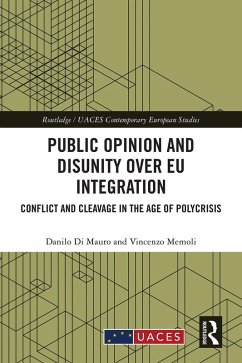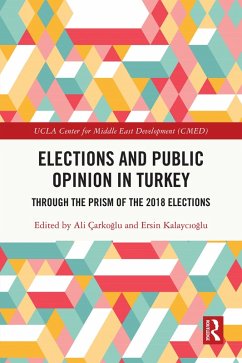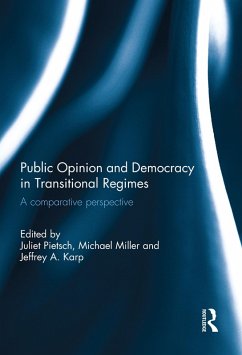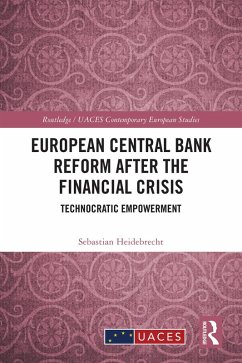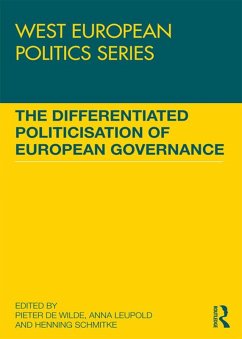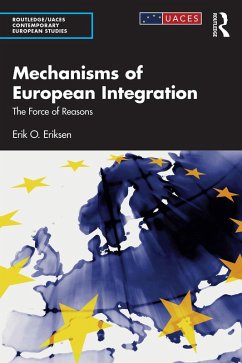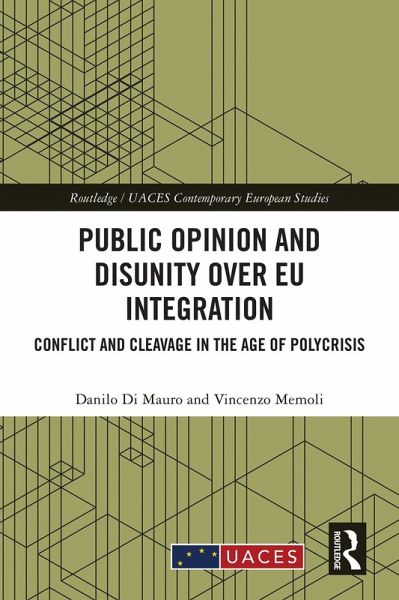
Public Opinion and Disunity over EU Integration (eBook, ePUB)
Conflict and Cleavage in the Age of Polycrisis
Versandkostenfrei!
Sofort per Download lieferbar
42,95 €
inkl. MwSt.
Weitere Ausgaben:

PAYBACK Punkte
21 °P sammeln!
This book explores the origins, characteristics, and impact of public support for the European Union (EU) on the process of EU integration.It examines core questions around the dynamics behind the (dis)integration processes, how multidimensional attitudes toward the EU are interrelated, the dimensions and cleavages of party competition, and the public-political elites link in EU policy-making. By simultaneously applying cleavage and post-functionalist theoretical perspectives, the book observes whether the era of multiple crises has changed support for the EU, creating a more polarized public ...
This book explores the origins, characteristics, and impact of public support for the European Union (EU) on the process of EU integration.
It examines core questions around the dynamics behind the (dis)integration processes, how multidimensional attitudes toward the EU are interrelated, the dimensions and cleavages of party competition, and the public-political elites link in EU policy-making. By simultaneously applying cleavage and post-functionalist theoretical perspectives, the book observes whether the era of multiple crises has changed support for the EU, creating a more polarized public whose attitudes can constrain, favor, or even stop integration and country membership.
This book is of key interest to scholars and students of global governance, Euroscepticism, populism, public opinion, democracy, and more generally, European/EU studies and European politics.
It examines core questions around the dynamics behind the (dis)integration processes, how multidimensional attitudes toward the EU are interrelated, the dimensions and cleavages of party competition, and the public-political elites link in EU policy-making. By simultaneously applying cleavage and post-functionalist theoretical perspectives, the book observes whether the era of multiple crises has changed support for the EU, creating a more polarized public whose attitudes can constrain, favor, or even stop integration and country membership.
This book is of key interest to scholars and students of global governance, Euroscepticism, populism, public opinion, democracy, and more generally, European/EU studies and European politics.
Dieser Download kann aus rechtlichen Gründen nur mit Rechnungsadresse in A, B, BG, CY, CZ, D, DK, EW, E, FIN, F, GR, HR, H, IRL, I, LT, L, LR, M, NL, PL, P, R, S, SLO, SK ausgeliefert werden.




